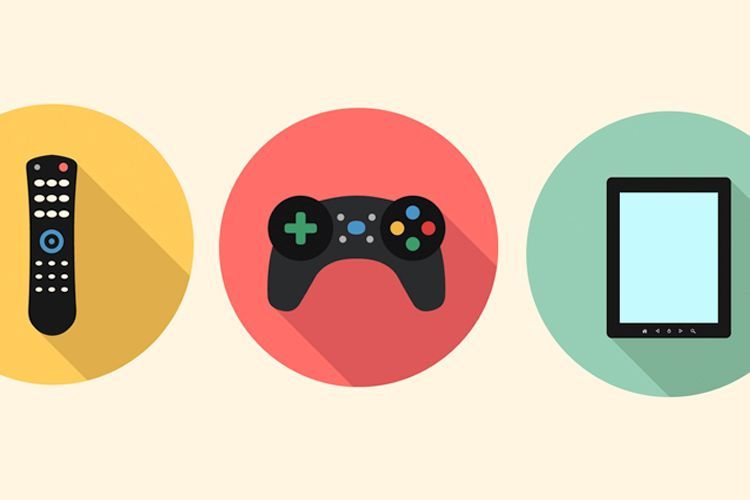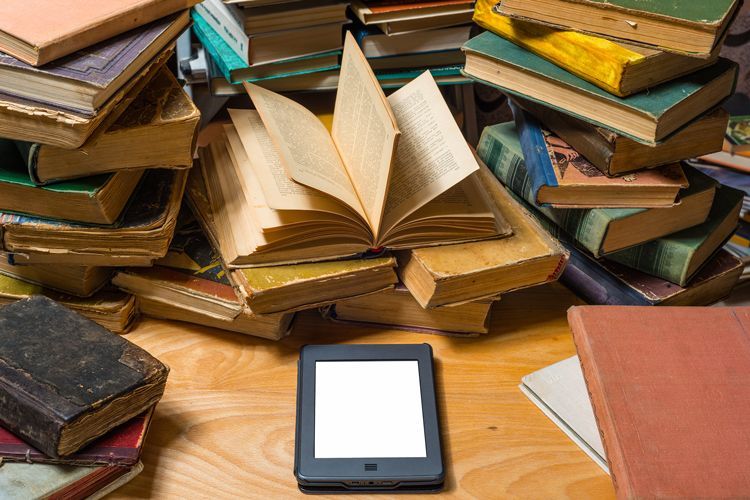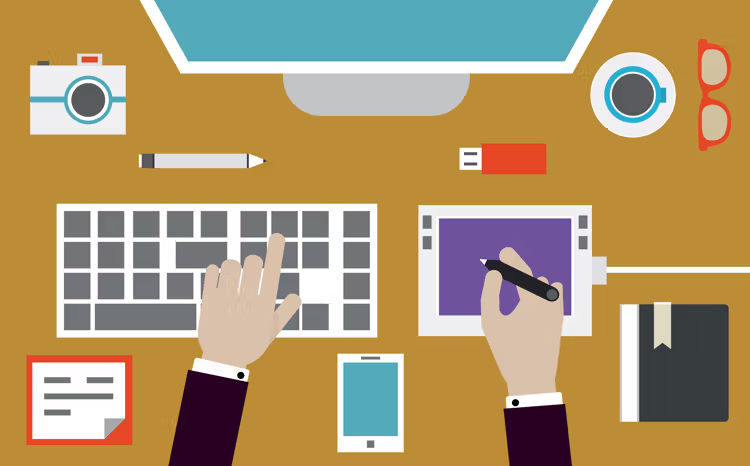When The Digital Entertainment Files You Thought You Owned Are No Longer Yours
Do you actually own digital book, music, and movie purchases, or are you just renting them for the duration of your life?

In May, 2016 Apple had a PR crisis on its hands thanks to a blog post on Vellum by composer James Pinkstone, who claimed Apple Music deleted several of his files without permission.
Here’s a basic overview of how an Apple Music subscription is supposed to work:
- It scans a user’s computer and other devices for songs and matches them with ones in their massive database.
- When there’s a match it identifies the music you already own and allows you to access those song from their cloud rather than from your computer, phone, or wherever else you store the files.
- When there’s no match to their library, it uploads them to their database, and now you can listen to them from the cloud as well.
Ideally, it’s supposed to make your entire collection, along with the millions of songs they offer, accessible from anywhere. This didn’t work out quite so well for Pinkstone. Here’s what he says happened:
- The platform was falsely identifying certain songs in his collection as duplicates and replacing them with different versions. For example: A rare demo would be replaced with the one from the album.
- When it didn’t recognize Pinkstone’s own original compositions, it uploaded them to the cloud and deleted them from his computer. Apple Music would then serve the files back to Pinkstone, but they no longer belonged to him.
- The only way for him to access all his music now was via Apple Music, and if he canceled his subscription he would no longer be able to access any of it — including his own compositions — without paying the monthly fee.
As he put it, “Apple stole my music.” If you’re interested in taking a deeper dive into what happened, here’s a 10 minute video someone made demonstrating the issue.
Apple responded by saying they would have additional safeguards in the next version of iTunes, but cases like these have understandably scared people who have spent a lot of money on digital media collections. (Even moreso since CNET couldn’t find any obvious updates in iTunes 12.4.)
Imagine this: What if you hired a service to make all your CDs, tapes, and albums digital? They came over to your house, gathered up all your media, and took it away to perform their magical process. You were then given access to an app you could use across all your devices to access the music they digitally transferred.
The catch: You never get your CDs, tapes, or albums back. You might think it’s okay, since you now have the digital files. Who needs all that old media anyway? Well, they also added a special code to every one of those digital files making them only accessible through their service. If you stop paying for it, you’ll be cut off from your own music forever.
This service would also add a special code to all your previously downloaded digital media files as well, making them only playable through their service.
Even if you agree to terms and conditions — you know, that long, impossible to read list of rules you ignore and click “agree” — this seems almost like theft, right? Or is this just what media is becoming in the streaming age, where ownership is gradually replaced with renting.
Beyond Music

This issue also has implications for digital book, movie, music, and video game files. In the Apple Music case, Pinkstone was saved because he backed up his music files on hard drives that never synced with the Apple servers — and that seems like the only way to maintain ownership of most media files. It’s much easier to safeguard the copy of Abbey Road if you still have the actual CD, than it is to lock down the digital copy of The Avengers you bought off of iTunes.
Most digital purchases live exclusively on Apple, meaning you never actually get a physical copy. Sure, you can drag the file onto a hard drive, but it will only play on an Apple platform linked to your Apple ID, or through an Apple TV.
You may have paid the same price as a physical copy, perhaps more, but you merely bought the right to watch those films whenever you want through their service. That means there’s no easy way for you to share these copies. It’s possible to burn iTunes movies onto DVDs, but the process is complicated, not exactly above board, and nobody has time for that. Seemingly, the only way to “bequeath” files like these is to give someone access to your account, which would then have to be maintained after your death… even though that goes against the terms and service agreement you clicked and didn’t read (Section IV. Your Use of the Service; Part D: No Right of Survivorship).
That certainly seems to be the case with Amazon Video, which allows you to download movie purchases to compatible devices — where offline viewing is possible — but you’re still locked into their platforms. YouTube also allows you to download VOD movies you purchased, except it’s tethered to the Google Play app.
So what about video games? Gamers have been debating the drawbacks and benefits of physical versus digital copies for years now. You can find the arguments on several messageboardthreads, but here’s how a Redditor summarized the major issues against digital copies:
If the network is down, you can’t play your game. If you get hacked or banned from the network, you could lose access to all your purchases. You can’t sell or truly share any of your games. And there’s no explicit guarantee PlayStation (or Xbox) will continue hosting these games that you are merely renting long-term. Everything is tied to your account, which is where your digital media will remain (seemingly) forever.
Finally, there are the ebooks you read on your Kindle, Nook, or iPad. Bad news there, too. The first major story appeared in 2009 when Amazon remotely erased George Orwell books from Kindle devices. (It was almost too ironic since one of the novels deleted was “1984.”) Amazon admitted they handled the situation poorly, but it demonstrated the power digital media providers could wield. Just imagine if a bookseller broke into your house in the middle of the night and stole a book from your nightstand. Regardless of the justification, it’d be a crime.
But it’s getting harder to actually own digital book files — two years ago, Barnes & Noble scrubbed the “download” button from all Nooks and then killed their Nook app entirely. Apple purchases can only be read on a supported platform with iBooks, but there’s slightly more freedom with Kindle. You can read ebooks purchased through Amazon on Apple devices via the Kindle app, and it’s easy to share titles within a household if you have multiple people on an Amazon account. Still, there are many ebook restrictions you won’t find with paperback novels. Like, for example, making sure your kids or grandkids get them after you pass away.
Plan Now, Or Let It All Slip Away

Media is changing, so maybe future generations won’t view music, movies, books, and games the same way as prior generations.
Just look at Netflix. You pay a monthly fee (which always seems to be going up lately) and have access to thousands of movies and TV shows. You have no expectation of ownership. Each month new programming is added, and movies and shows are deleted because Netflix no longer has the rights. Most of the time you never even notice when something's removed — unless it was a movie you always watch when you’re sad, or the one show that got your kids to relax for an hour or two. Then you’ll wish you had a hard copy since licensing rights are a fickle thing and no one service can provide everything for a reasonable monthly price.
It’s hard to tell at this point if companies like Amazon, Apple, Playstation, and Xbox will pivot towards tighter or looser control over the media files their users own. But at least for now, the only surefire way to acquire books, movies, and music that you can share and bequeath as you see fit is to buy the real deal or create a digital estate plan that accounts for all these things.
If you live in a state with digital estate laws, you have some recourse when it comes to accessing these accounts and services. If you don’t, you could share your login information and suggest the new owner transfer the account — the same way you’d update an account when you change your email address. In some instances, the device itself can be preserved and frozen in time. For example, you can turn off the wifi for grandma’s Kindle so it never accidentally gets synced to the Amazon servers, ensuring you don’t lose the dozens of books she downloaded (and put a sticker on the device “Grandma’s Library — Never Sync!”). Whatever you choose to do, just make sure you have something in place so your digital purchases don't disappear along with you.
- Task: Get Your Passwords OrganizedThe typical person has an average of over 200 different online accounts,...Read more
- Digital Cheat Sheet: How To Create A Digital...What happens to your digital property after you die? Great question! Here's...Read more
- Task: Grant Access To Your DevicesIn case of an emergency, how could someone you trust access your phone?Read more
- Task: Clean Up Your Phone ContactsWe’re all familiar with naming an emergency contact if something happens,...Read more



